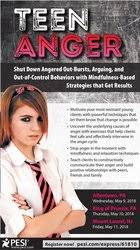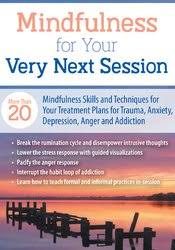🌟 New Year Offer 🌟
Celebrate 2026 with 30% OFF on all products! Use code: NEWYEAR2026. Hurry, offer ends soon!
Jason Murphy He knows how angry children feel. He’s been one. He knows that teens feel lonely, isolated, and misunderstood. He also knows how damaging and explosive expressions of anger can ruin teens’ relationships, devastate their families, and put their health and futures at risk.
Jason Murphy – Teen Anger, Shut Down Angered Out-Bursts and Arguing Out-Of-Control Behaviors

I was sixteen years old when I was diagnosed with an anger problem. I was sent to see a psychologist. “Anger isn’t my problem,” I thought, “you’re my problem” “You” being the adults in my family who didn’t know how I spoke to them. I didn’t believe that I could change if I was told that my anger was justified. My psychologist shared with me a way he had learned to let go of some anger. He asked me if it was something I would consider trying. I was skeptical at first, but I tried mindfulness meditation and learned a lot about how I can change my reality.
~ Jason Murphy, MA. LMFT. CADACII. ICAP
Jason Murphy He knows how angry children feel. He’s been one. He knows that teens feel lonely, isolated, and misunderstood. He also knows how damaging and explosive expressions of anger can ruin teens’ relationships, devastate their families, and put their health and futures at risk.
He is a counselor and understands the struggles of adolescents to find the root cause of their anger. He understands the difficulties of building a trusting and respectful relationship with teenagers who are angry, disillusioned, and skeptical about what is possible. The frustration of trying to stop the cycle of reactivity in order to help angry young clients live a happier, more balanced life.
This recording is packed with practical applications. You will learn how to inspire transformation in your clients, and how to effectively detoxify their anger. Motivating strategies that engage even the most resistant clients will help you cultivate transformation and let them know that it is possible to achieve positive change. You will teach your clients mindfulness, emotional regulation and compassion, problem solving, and skill building activities. These can be combined with experiential exercises and adaptable tools that reduce anger and empower them to manage it at school, home, and in their most important relationships.
Key Benefits:
- Skills that reduce self-deprecating behavior-Talk to the people who are causing you anger.-Bursts of anger, fighting, and arguing.-Of-Control behaviors
- Relaxation techniques, as well as disengagement strategies, can be used to reduce anger and help teens get out of destructive situations.
- Assertiveness training — teach teens to share anger constructively and without aggression.
- Young clients can use social skills and functional coping to improve their school lives, and help them stay grounded.-When tensions rise, you can control them.
- The clinician can identify the different manifestations of anger and the underlying causes. This will help them choose the best intervention techniques.
- Reluctant or difficult clients can be treated with strategies that communicate the possibility for change and create a safe environment for them to express their feelings.
- A case conceptualization for aggressive and angry young clients is developed that encourages collaboration between therapist, parents and adolescents and strengthens the therapeutic alliance.
- Find a way to teach clients how to recognize physical signs of anger.-session to explain how this skill can be applied in real-world settings.
- Reduce the body’s anger response with progressive muscle relaxation and mindful breathing techniques that diminish anger in the moment.
- Learn how to communicate anger constructively to clients using assertiveness techniques. This will increase their emotional vocabulary and allow them to manage stressful situations without resorting to aggression.
Would you like to be contacted? Jason Murphy – Teen Anger, Shut Down Angered Out-Bursts and Arguing Out-Of-Control Behaviors ?
The Root Causes of Anger
- How anger styles influence your clinical approach
- Masked anger
- Explosive anger
- Chronic anger
- Create a safe environment for therapeutic purposes
- Exercise: Common fears, common threats
- Safe exercise
- The cycle of anger
- Avoid shame and avoidance
- Trauma
- The intersection of anger & addiction
You Can Change: Must-Use these techniques to cultivate transformation
- Assess your readiness for change
- Intervention cost benefit analysis
- Motivational techniques
- Acceptance and acceptance of change
- Exercise:
- The CALM log
Get angry teens past negative thoughts and emotions
- Triggers
- Anger mapping
- Reduce negative self-Talk
- Emotion regulation exercises
- Show compassion for others and yourself
Stop judging the moment: Calm your body with mindful interventions
- Anger Alarm – noticing anger in your body
- Breathe through anger
- Grounding and distraction techniques
- Self-Relaxing with soothing words and imagery
- Techniques to let go of old anger
- Exercises
- Big Sky Meditation: Cooling wisdom
- The Emotional Fire Extinguisher
React instead of reacting: Teach teens how to constructively communicate their anger
- Training techniques for assertiveness
- Create an emotional vocabulary
- Use humor to calm your anger
- Exercises:
- Deepen your understanding
- ”I” messages
Course Features
- Lecture 0
- Quiz 0
- Duration Lifetime access
- Skill level All levels
- Language English
- Students 245
- Assessments Yes

